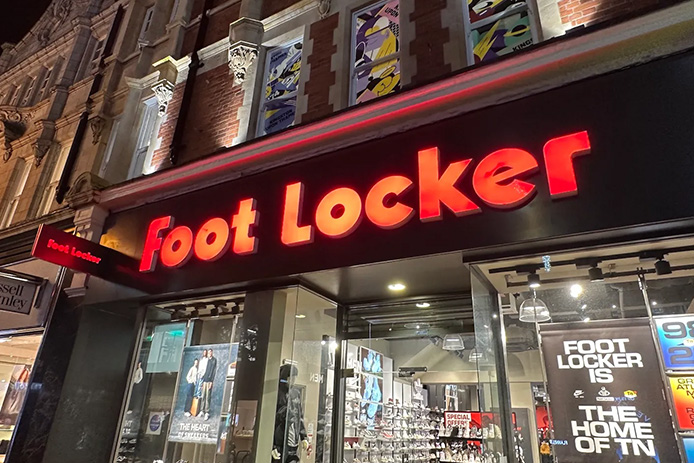Foot Locker COO: Supply Chain Leaders Can't Ignore World Events

If recent events in the Red Sea are any indication, brands aiming to fortify their supply chain in 2024 will need expertise that goes well beyond logistics operations.
At the Manifest 2024 supply chain and logistics conference on Feb. 6, Elliott Rodgers, executive vice president and chief operations officer of Foot Locker, expressed the need for today’s supply chain managers to stay on top of the current geopolitical landscape.
Acknowledging the ongoing Houthi attacks in the Red Sea, Rodgers said that while supply chain leaders often already require core competencies such as resiliency and adaptability, these decision makers must be comfortable with ambiguity as well.
“If you look at what’s happening in the Suez Canal, for example, we can’t operate within our individual silos in our business,” Rodgers said. “We have to think about the implications of what’s happening in the world around us. You want people to be able to look at world events and start to understand, ‘What does this mean for our business?’ and be in the room and articulate, ‘Why does this matter for us?’”
The rerouting of ships away from the Red Sea around southern Africa’s Cape of Good Hope has delivered no shortage of ambiguity for brands. Delays of goods are often extended anywhere between 10 and 14 days, with some voyages lasting even longer.
And beyond the obvious changes in lead times, freight rates saw a rapid escalation in December and January, putting supply chain execs unfamiliar with the Red Sea ramifications at a disadvantage—particularly if they waited too long to lock in a favorable spot rate.
During the keynote, Rodgers noted that the bullwhip effect of demand during the Covid-19 pandemic shifted how many operators viewed the supply chain, forcing them to prioritize “three Rs” at once: responsiveness, reliability and resiliency.
Pre-pandemic, Rodgers noted “there had been a lot of focus on the on-time reliability costs and quality,” but that the conversation further shifted in recent years to responsiveness in retail and consumer goods supply chain circles.
“We had to be able to respond to the consumer and listen to demand signals, but there had been very little focus on resiliency,” he said. “I think with the disruptions from the pandemic, it made organizations rethink the importance of having a resilient supply chain.”
Following in the footsteps of Foot Locker CEO Mary Dillon, Rodgers stepped into the COO role at the end of 2022 after eight years at Ulta Beauty, where he served in stints as the company’s chief supply chain officer and chief information officer. At Foot Locker, Rodgers oversees the retailer’s supply chain, IT, procurement and the retailer’s customer contact centers.
Since March 2023, Foot Locker has sought to reestablish itself as a modern omnichannel organization via its “Lace Up” strategic plan, which has goals to grow sales from a projected $8 billion in 2023 to $9.5 billion by 2026.
“We’re well on our way to that,” Rodgers said of the Lace Up plan, “which is about expanding our sneakers to more consumers, powering up and diversifying our real estate portfolio…and deepening our relationship with customers.”
In the conversation with Rodgers, Maria Villablanca, CEO and co-founder of supply chain transformation consultancy Future Insights Network, cited McKinsey & Co. data stating that 70 percent of organizational transformation efforts fail. When asked about the concerns that statistic brings, Rodgers noted that “if you don’t have a failure within any transformation, you’re probably not pushing the envelope hard enough.”
Rodgers said supply chain practitioners have one major advantage to making an organizational transformation work: data.
“Being data-driven is largely core to our DNA, because we’re very results-driven and execution-driven. We measure everything,” Rodgers said. “I’m really excited about new technologies, whether it’s RFID, IoT and things like that, and what greater visibility that will bring to supply chain, and allow us to better serve our customers. And more importantly, it allow us to better achieve the value that the organizational value proposition that we’re a part of.”
